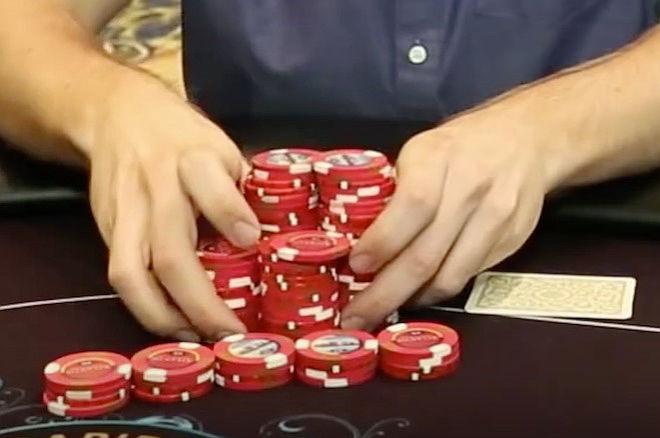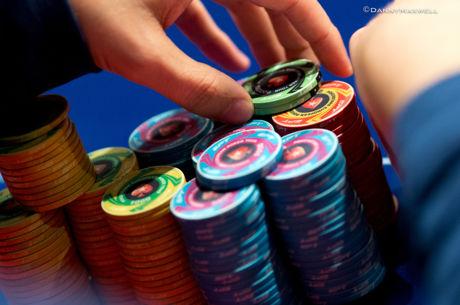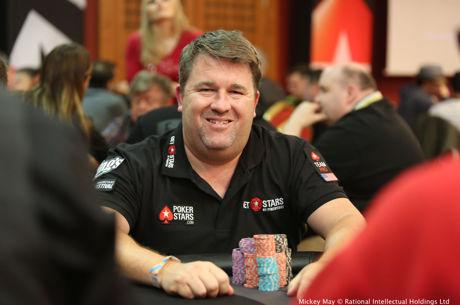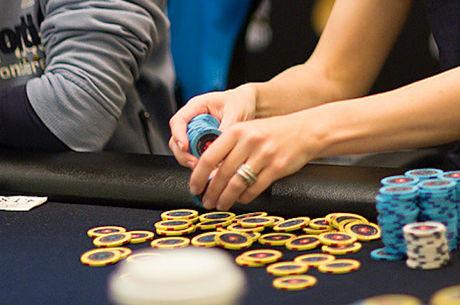5 Suggestions for Playing in Extremely Wild Poker Games

Sometime in your playing career you may see a poker game with many wild and crazy gamblers. I'm not talking about a game with extremely skilled and aggressive players. I'm talking about a game with wild, maniacal players �� those with little or no skill. You know that you are more skilled than the players you're watching, but you're not sure you can handle the swings.
What type of game are we talking about, exactly? I want you to imagine a game in which many if not all of your opponents are playing with nearly complete abandon. Some of the players are shoving in their stacks preflop and postflop �� with a range as large as infinity �� just for the fun of seeing their stacks riding on the outcome of the hand.
Here's a specific account of such a game I played in recently, a $2/$5 NL game with a $1,000 maximum buy-in. Every third hand or so had three or four players players shoving preflop. Shoving hands included Q?J?, J?4?, 3?3?, 9?8?, A?9?, 6?4?, and Q?6?.
Not all hands were like that, of course. And there was clearly some degree of restraint. 72 was never showed down, as I recall. Neither was 83, 62, or 52. But paint with anything might be in a shover's range, as well any pair, any connectors, and any suited cards �� all regardless of position.
Similarly, hands might be shoved on the flop just for hitting middle pair, having an overcard to the board, or just because a player felt he was on a rush.
You might at first be fearful of such a game, especially if you're playing on a limited bankroll and don't think you can handle the swings. You may wonder if you could sit in such a game, and if you did, what strategy you should adopt.
You don't have to be afraid. There are steps you can take and strategies you can employ that can help you navigate these stormy waters, allowing you to take advantage of the soft though maniacal players. Here are a few suggestions for playing in such a game.
1. Play Straightforwardly
Don't get tricky. Rarely if ever bluff. There is no need for an "expert" play. In a game like this, most of the time, the best hand will win at showdown. You will win more money than you lose by consistently getting it in good. Play straightforwardly, strap yourself in, and ride the waves.
This is not to say that you can't be aggressive yourself, or even that you can't get people to fold. It's true that with a large number of maniacal opponents, you shouldn't be counting on winning any pots by knocking out your opponents with clever deception. Nonetheless, there are times in such games when aggression can be called for.
Chiefly, you should be aggressive when you believe you have a superior hand and want to eliminate players. For example, imagine someone raised the $5 blind to $30 from under the gun. You are next to go and look down to find a premium pair. Now would be a good time for you to make a large raise.
Even the crazy gamblers at the table have probably noticed that you are playing tightly. Some of them, if not all of them, may respect your raise enough to get out of the way. Some of them may not. That's fine. Let them draw against you. You have a legitimate hand.
But use what betting power you have to diminish the chances that you'll be outdrawn by someone with two random cards.
2. Be Reluctant to Set Mine
Set mining with medium and low pairs probably doesn't make sense in this kind of game, unless you can get to the flop very cheaply. Recognize that if you're in early position and you're calling any kind of raise, no matter what the price you're offered, it may well be your entire stack going in preflop.
Consider the price you're likely to get with your entire stack at risk. Assume before even getting involved that you're going to be all in. If you are, will the pot that you can win be large enough to justify the draw?
For example, if you're preflop with 2?2? and are thinking of calling a raise to $30, look down the road and think about whether you're likely to be getting the right price if you're all in. If you won't be, toss them. You won't be paid enough to justify the few times you'll hit your set.
Even if you think the pot you expect to win will be large enough to justify your call, with a table full of people staying to showdown, there's a reasonable chance you could lose even if you hit your set of deuces as you'll be up against many people drawing until the river with their pairs and flush and straight draws.
Tend to stay away from those low and medium pairs unless you're on or right near the button or in the blinds and fairly sure no one is going to shove or make a significant raise after you've entered the pot.
3. Let the Maniacs Lead the Betting
With a table full of maniacs, you can let them take the lead when you do hit a monster, calling along and not drawing attention to the true strength of your hand.
Since you'll be practically the only one playing selectively and "responsibly," why run the risk that they'll notice you are happy about your hand and deny you action? You'll be better off letting the maniacs lead the betting since they are sure to get action from their opponents who know they play almost anything aggressively.
You're almost certain to get it all in, anyway, and you might entice a few more players who are drawing to second-nut hands that you'll dominate. (This may go against the "straightforward" play recommended above, but can be effective when it's clear one or more opponents in the hand are willing to do the work of building pots for you when you're very strong.)
4. Buy In Short
One other suggestion for these hyper-maniacal games is to play them with a short stack �� that is, unless you already have a huge poker bankroll and don't have to worry about the large swings of such a game.
In a game like this, if you're trying to "ride the waves" of extreme variance caused by maniacal players, you want to maximize two things: (1) the times you can buy back into the game, and (2) the times that you get to go to showdown. A short stack will increase your opportunity to do both of those things.
While it's true that you will not make as much when you double, triple, and quadruple up as you would if you had bought in for the maximum, it will be more than worth it by both decreasing your chances of going broke and increasing the number of times you'll get to see the river.
5. Don't Be Afraid to Leave With a Large Stack
One final consideration is what you want to do after you have been successful and your short starting stack has significantly increased.
Let's say you bought in for $300, have doubled up three times, and now have $2,500. You are no longer playing a short stack. Your strategy may need to change. Consider the fact that you may be unwilling to put your full $2,500 at risk, and try to make such a consideration with the same detachment as you possessed when putting in your initial $300.
If that's the case �� if your session winnings make you afraid of losing what you have already earned �� think about leaving the game entirely, only coming back when you can start again with a short stack.
Conclusion
Playing against a table full of maniacs can be very intimidating. But by employing a few changes to your typical winning strategy, it need not prevent you from taking a shot at the game.
Ashley Adams has been playing poker for 50 years and writing about it since 2000. He is the author of hundreds of articles and two books, Winning 7-Card Stud (Kensington 2003) and Winning No-Limit Hold'em (Lighthouse 2012). He is also the host of poker radio show House of Cards. See www.houseofcardsradio.com for broadcast times, stations, and podcasts.









